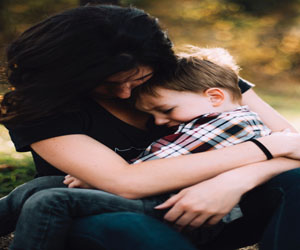


The Key To Long-Lasting Love

Compatibility is a critical factor in the success and longevity of any relationship, be it romantic, platonic, or familial. It refers to the degree to which two or more individuals are well-suited to each other, share similar values and life goals, and harmonize in various aspects of their lives. In this article, we'll explore the importance of compatibility in relationships and how it contributes to the strength and endurance of these connections.
Shared Values And Beliefs: One of the fundamental aspects of compatibility is shared values and beliefs. When individuals in a relationship align in their core principles and life philosophies, it creates a strong foundation for understanding and respect.
Common Interests And Hobbies: Having shared interests and hobbies can lead to quality time spent together. This shared leisure time fosters bonding, enjoyable experiences, and the creation of cherished memories.
Effective Communication: Compatibility often extends to communication styles and habits. Partners or friends who communicate well and can understand each other's needs and emotions have a distinct advantage in maintaining a healthy relationship.
Emotional Compatibility: Emotional compatibility involves an understanding and acceptance of each other's emotional responses and expressions. Individuals who are emotionally compatible are more likely to provide the support and empathy required for a successful relationship.
Life Goals And Ambitions: Compatibility in terms of life goals and ambitions ensures that both parties are moving in the same direction. This alignment prevents conflict that might arise from pursuing radically different life paths.
Conflict Resolution Styles: Compatibility in conflict resolution styles is vital. Understanding how to navigate disagreements and conflicts with minimal damage to the relationship is key to maintaining harmony.
Intimacy And Affection: Emotional and physical compatibility in terms of intimacy and affection contribute to a strong romantic relationship. Compatibility in this realm helps maintain the spark and passion over time.
Respect For Differences: While shared values and interests are essential, compatibility also involves respect for differences. Healthy relationships recognize that individuals will have unique qualities and preferences, and they appreciate and accept these diversities.
Acceptance Of Each Other's Flaws: In a compatible relationship, there's an understanding and acceptance of each other's imperfections. Instead of trying to change one another, compatible partners appreciate each other for who they are.
Similar Lifestyles: Compatibility often extends to lifestyle choices, such as financial habits, dietary preferences, and daily routines. When these aspects align, it can lead to a smoother and more harmonious relationship.
Ease Of Coexistence: In a compatible relationship, individuals naturally coexist with a sense of comfort and ease. There's no constant struggle to make things work or to change one another.
Shared Sense Of Humor: Shared humor and the ability to make each other laugh are indicative of compatibility. A good sense of humor can diffuse tension and create a lighthearted atmosphere in the relationship.
Compatibility in relationships is a fundamental component of a healthy and enduring connection. While it's not necessary for two people to be entirely alike, compatibility ensures that individuals are well-matched in their values, interests, communication styles, and emotional responses. It promotes harmony, mutual understanding, and support in relationships, which are crucial for long-lasting love and meaningful connections. Recognizing and nurturing compatibility can lead to a more fulfilling and satisfying experience in any type of relationship.
How Childhood Experiences Shape Adult Relationships
 The Crucial Role Of Childhood Experiences
The Crucial Role Of Childhood Experiences
Childhood is the laboratory of emotional development, where the seeds of future relationships are sown. It's a time when we learn the essential elements of trust, empathy, vulnerability, and attachment. These building blocks are fundamental to forming healthy connections and fostering robust relationships in adulthood.
Positive Childhood Experiences And Healthy Connections
Positive childhood experiences serve as the fertile ground for the growth of healthy connections in adulthood. These early years are pivotal in developing the psychological and emotional attributes that contribute to forming lasting, meaningful relationships.
Trust: A nurturing childhood environment based on trust and reliability lays the groundwork for forming secure emotional connections in adulthood. Trust is the cornerstone of any healthy relationship, allowing individuals to open up and be vulnerable with one another.
Self-Esteem: Positive childhood experiences nurture a sense of self-worth and self-esteem. Individuals who grow up in such environments are more likely to maintain a positive self-image, which positively impacts their emotional well-being and their ability to build healthy connections.


A Journey Of Discovery And Depth
 A Solid Foundation
A Solid Foundation
Best friends in love have already established a rock-solid foundation of friendship. They've spent countless hours together, sharing laughter, secrets, and a deep understanding of each other's lives. This foundation provides a unique advantage, as it's built on trust and the knowledge that these individuals genuinely care for one another.
Mutual Understanding
One of the most beautiful aspects of best friends in love is the level of mutual understanding they share. They've seen each other at their best and worst, knowing the quirks, fears, and vulnerabilities that make them who they are. This profound understanding paves the way for a romantic relationship rooted in empathy and respect.
Shared Memories And Experiences
Best friends in love often have a treasure trove of shared memories and experiences. Whether it's the adventures they've embarked on together, the challenges they've overcome, or the inside jokes that only they understand, these shared moments create a unique and lasting connection that enriches their love story.
The Delicate Transition
The transition from friendship to romance is a delicate and thrilling phase. It often starts with subtle signs of attraction, growing feelings of fondness, or a realization that the bond they share runs deeper than they ever anticipated. This transition is typically marked by open and honest conversations about their evolving emotions.
The Deep Connection Beyond Words
 One of the defining features of a kindred spirit connection is the ease of communication. It's not just about talking, but about being truly understood without the need for elaborate explanations. These connections often involve shared silences, where words become unnecessary because both individuals understand each other's thoughts and emotions without the need for verbal confirmation.
One of the defining features of a kindred spirit connection is the ease of communication. It's not just about talking, but about being truly understood without the need for elaborate explanations. These connections often involve shared silences, where words become unnecessary because both individuals understand each other's thoughts and emotions without the need for verbal confirmation.
Kindred spirits are not solely limited to romantic relationships. They can be friends, mentors, or even family members. The key is the sense of familiarity and resonance that you feel when you're in their presence. These connections often develop organically, with individuals recognizing the unique chemistry and bond they share.
One of the remarkable aspects of kindred spirit connections is the support and encouragement they offer. These relationships provide a safe space to be one's authentic self. Kindred spirits not only accept but also celebrate each other's individuality and quirks. They encourage personal growth and self-discovery, and this mutual support strengthens the bond over time.
These connections often come with an innate sense of trust. There's an unspoken agreement that you can be vulnerable and share your deepest fears, dreams, and aspirations without fear of judgment. This trust creates a strong foundation upon which kindred spirit connections thrive.
While kindred spirits may not necessarily have identical life experiences, they often share similar life philosophies. It's as if they are traveling parallel paths in the journey of life, each learning and evolving in their unique way but still deeply connected. This shared resonance often leads to a sense of unity, a feeling of being in sync with one another.
 Physical boundaries relate to touch, intimacy, and personal space. It's essential to communicate and respect each other's comfort levels regarding physical affection, whether it's holding hands, kissing, or more intimate gestures. Consent plays a pivotal role here—always ensuring that both partners are comfortable and willing.
Physical boundaries relate to touch, intimacy, and personal space. It's essential to communicate and respect each other's comfort levels regarding physical affection, whether it's holding hands, kissing, or more intimate gestures. Consent plays a pivotal role here—always ensuring that both partners are comfortable and willing.
Emotional boundaries involve sharing feelings, vulnerabilities, and personal information. It's important to understand that not everyone is comfortable discussing certain topics or emotions right away. Respecting the pace at which someone is willing to open up emotionally fosters trust and a deeper connection over time.
Time and space boundaries refer to the need for individuality and personal time within a relationship. It's healthy to maintain hobbies, friendships, and interests outside the romantic relationship. Setting boundaries around alone time or social activities helps both partners maintain a sense of independence and personal growth.
In today's digital age, digital boundaries have become increasingly relevant. It involves respecting each other's privacy, understanding social media boundaries, and being mindful of how technology impacts the relationship. Discussing comfort levels with sharing information online or posting about the relationship is vital.
However, understanding and setting boundaries is not a one-time conversation; it's an ongoing process that evolves as the relationship progresses. It requires open and honest communication, active listening, and a willingness to respect each other's needs and limits.
The Art Of Love And Connection
 3. Quality Time Together
3. Quality Time Together
Quality time spent together is a way to deepen your emotional connection. Whether it's date nights, shared hobbies, or simple moments of togetherness, prioritizing time with your partner keeps the relationship vibrant and exciting.
4. Space For Individual Growth
While togetherness is vital, it's equally important to create space for individual growth. Encourage each other's personal pursuits and goals. A healthy relationship doesn't mean losing your own identity; it means growing together while allowing room for personal development.
5. Conflict Resolution
Conflicts are inevitable in any relationship, but it's how you handle them that matters.